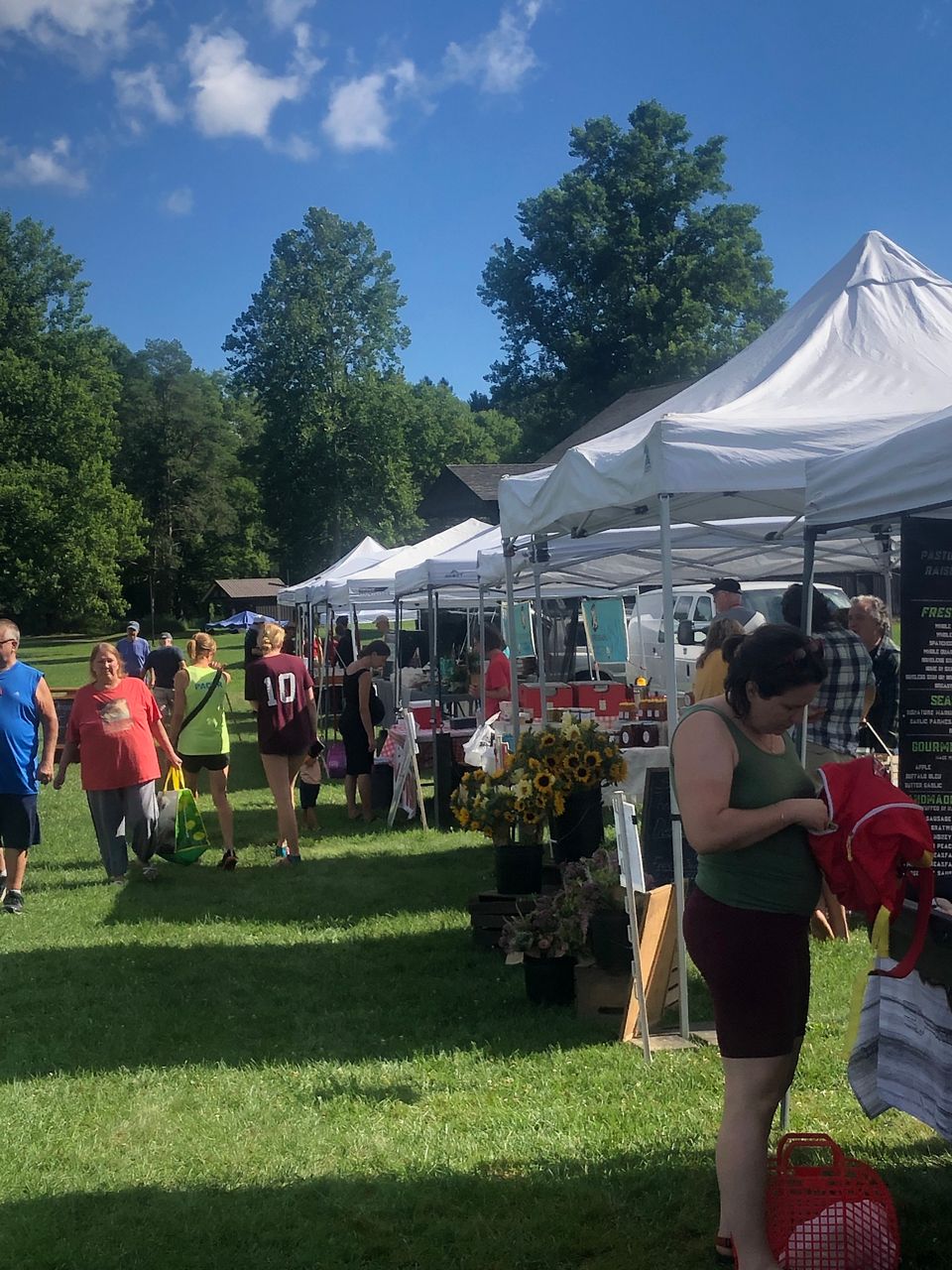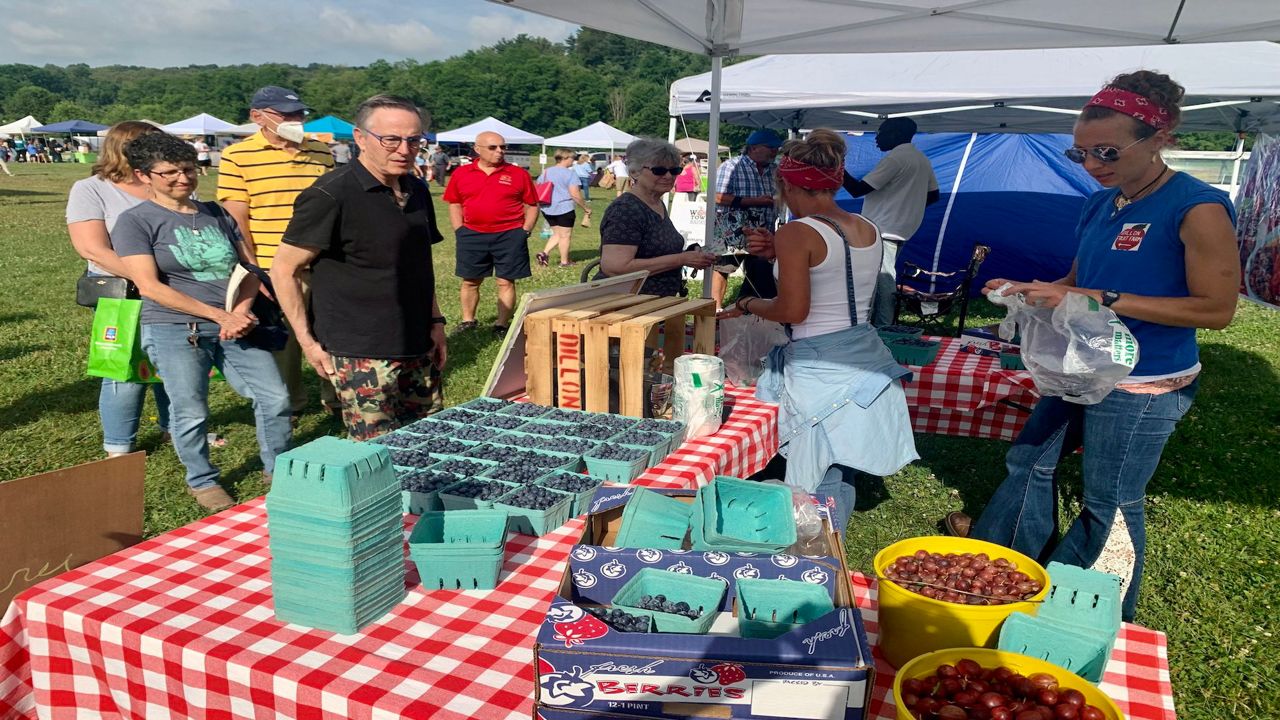PENINSULA, Ohio — For nearly 25 years, Countryside has hosted farmers' markets across northeast Ohio, as just one of the agency’s programs that provide locally grown food while supporting Ohio farmers.
Now, the nonprofit is struggling to the point of canceling markets and cutting programs, some that have been underway for years.
The agency’s financial woes can be attributed to the pandemic, even though Countryside kept its markets up and running, adding curbside ordering and pickup at its year-round market during the peak of lockdown.
“There's this sense that things are in recovery, but this is the year that financially we're paying the piper for these two years,” said Countryside Director Ginnette Simko. “I would say that it is the worst that it's ever been.”
Many people re-prioritized their giving during the pandemic, so contributions dropped, she said. Attendance at markets fell because of fear of community spread.
It added up to Countryside’s already lean staff seeing 100% turnover, she said.
“The people who were there at the end were spread very thin, so I think it was just kind of the perfect storm type of situation,” Simko said.
Countryside recently launched its annual Harvest Campaign, with a goal to raise $250,000. Of the total goal, $75,000 would help Countryside’s Howe Meadow Farmers' Market make it through the rest of the season, Simko said.
The Howe Meadow Market, Countryside’s longest running, most successful market, is a Saturday morning staple for those who come to the national park to buy produce, meat, cheese, baked goods, condiments, and hand-crafted home goods.
In early August, the Howe Meadow Market saw 2,600 attendees, Simko said. The farmers who supply that market rely on sales during their peak season, July through October, to support their farms throughout the rest of the year.
“It's a terrible time to be in a financial crisis,” she said. “So we cannot leave them hanging. That is our push right now.”
Farmers markets are vital because of the health value of buying food locally, Simko said. Food loses nutrients as it loses freshness from being shipped long distances.
In addition, many hands touch produce grown on the West Coast or in another country.

“If you shop right at a farm, it's going to go right from the farmer to you and very few people touch that food,” she said.
The supply chain also increases costs.
“Every piece of that chain costs money, and it costs fossil-fuel money at this point in time, too,” she said. “So you eliminate all of that by buying local.”
The rest of the funds raised by the Harvest Campaign will help retain staff so the agency can write grants and fundraise to move into 2023 on stable ground, she said.
In addition to fundraising, Countryside is trying to alleviate losses by writing grants and working to establish new partnerships, she said.
“There's just a lot up in the air,” she said. “We don't have a lot of answers and we won't until probably mid to late September.”
Among Countryside’s programs now on hiatus is the New Farmer Academy, which offered aspiring farmers boots-on-the-ground training at farms in and around the national park to learn to operate their own successful agriculture-based enterprises.
The agency also stepped away from its role overseeing food assistance programs in several northeast counties for Produce Perks Midwest, a program for families using SNAP, formerly food stamps, that doubles dollars when spent on healthy food at the markets, she said.
Countryside’s participation in the Barberton Farmers market was also reduced, and a decision has not yet been made on whether the Old Trail School Winter Farmers Market will go on this year. Normally running on Saturdays from November through April, the winter market has been well-attended for the last five years.
Countryside launched its first farmer's market in 2004 at Howe Meadow, and in 2009, began accepting food-assistance programs at markets, eventually creating Carrot Cash, its own nutrition incentive program.
Countryside’s push to “eat local” has steadily grown ever since. To learn more about the organization, visit the Countryside website.



